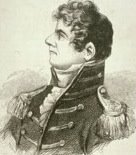The State of Liberal Anglicanism
 The Rev. Lynda Patterson is Director of Theology House, Christchurch, New Zealand. Theology House descends from College House, which operated both as a theological college and a hall of residence for the University of Canterbury.
The Rev. Lynda Patterson is Director of Theology House, Christchurch, New Zealand. Theology House descends from College House, which operated both as a theological college and a hall of residence for the University of Canterbury.Before her post at Theology House, Patterson was the G.B. Caird Lecturer in New Testament at Mansfield College, Oxford University.
She writes in the current issue of The Anglican Taonga, the news magazine of the Anglican Church in Aotearoa, New Zealand and Polynesia, that liberal Anglicanism, the stream most closely identified with Anglicanism in general, must reexamine and reinvigorate its theology if it is to survive and prosper.
In fact, she argues, it is the failure of liberal Anglicans to think more seriously about our distinctive theology and articulate it more clearly, that has contributed to the current controversies in the Anglican Communion.
Her article is titled "The Death of Liberal Anglicanism?" which no doubt underscores the timeliness and seriousness of her presentation.
Patterson identifies four areas for theological examination and if necessary, reinvigoration: Scripture; the centrality of grace; mission; and ecclesiology, which is a broad category indeed, since it includes a number of issues.
What follows is an excerpt.
∞ ∞ ∞
 For those of us who consider ourselves liberals, there is something disorientating about the current state of Anglicanism. The rug seems to have been pulled from under our feet. We find ourselves increasingly squeezed between two competing conservatisms. There is an evangelical one which seems determined to implant a rule book of doctrinal and moral orthodoxy at the centre of Anglicanism.
For those of us who consider ourselves liberals, there is something disorientating about the current state of Anglicanism. The rug seems to have been pulled from under our feet. We find ourselves increasingly squeezed between two competing conservatisms. There is an evangelical one which seems determined to implant a rule book of doctrinal and moral orthodoxy at the centre of Anglicanism.There is a catholic one committed to preserving the unity of the church by re-inventing the primates as a sort of Anglican curia. A church which seemed to have room for diverse expressions of Christian faith is solidifying around us into something rigid and unfriendly. What happened to the Anglican habit of cultural sensitivity and intellectual flexibility ?
If we are honest, we liberals have to shoulder some of the blame for the loss. The liberal tradition had settled down into something which looked suspiciously like complacency.
Even the early stirrings of the debate on homosexuality seemed to pose no serious threat. It had long been the logic of Anglicanism that reform movements eventually – if often with painful slowness – won the day. The church's position on the ordination of practising homosexuals looked as if it was temporary. It was assumed that evangelical objections were an attempt to resist change, and in the longer term, they would eventually be worn down.
There is a story, possibly apocryphal, about the press officer of the Diocese of New Hampshire who was approached by a journalist on the day of Gene Robinson's election, and asked about its potential impact. She is said to have replied that the story was very likely to make the local television news that evening, and might even be reported nationally. In the light of everything which has happened since, this shows an almost touching naiveté.
Those of us on the liberal wing of the Church also show some signs of neglecting to take our theology seriously enough. Part of the distinctive calling of the liberal tradition is learning to speak with secular culture in a language it can understand. At best, there is a commitment to theological hospitality, to encouraging those exploring the Christian faith whose search starts not from the Bible or the doctrines of the church, but from the most sensitive and creative parts of their own experience.
In an effort to avoid the sort of position which rejects everything outside the church, or everything not explicitly authorised by the Bible, we can end up carelessly affirming every aspect of secular culture. There is no room left to critique its injustices and its excesses. Our task is to witness to God’s transforming power, but sometimes we have lost sight of the Gospel’s subversive edge.
It is not yet clear whether, to borrow from Mark Twain, the death of Anglican liberalism is exaggerated. Most of us speak and listen mainly to the people who share our worldview, and assume that it is the natural one to belong to. It's easy to fall into a sort of anxiety, because the particular picture of the church, of holy life, of effective mission, which we subscribe to doesn’t seem to be getting the hearing it deserves. We end up with a situation where everyone believes they are a persecuted minority.
We have to be committed to keeping the conversation going with those whose vision of the church we find peculiar or bewildering or infuriating. But it is also essential at this point for liberals to think seriously about their distinctive theology and be prepared to articulate it more clearly than we have done in the past. The four areas below are suggested starting points for dialogue:
To continue reading about the specific proposals, follow this link to the Anglican Taonga.


1 Comments:
Admiral, I put this aside to read but I can't find the original article. I downloaded the Easter 2008 & both parts of Advent 2007 but it's not in these.
What am I missing?
Post a Comment
<< Home